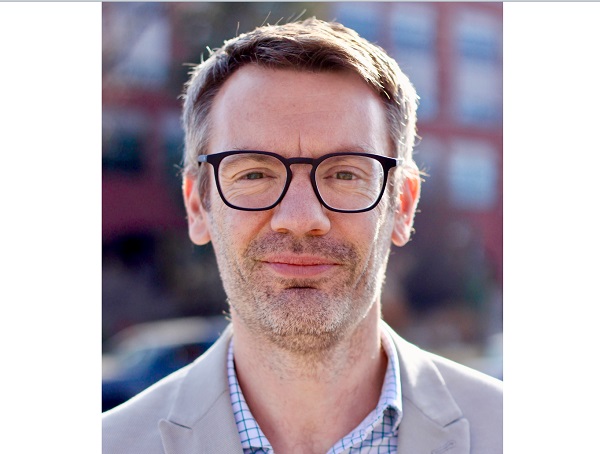 Thomas Cauvin;
Credit: Natalie Stacker
Thomas Cauvin;
Credit: Natalie Stacker
The Luxembourg National Research Fund (FNR) has announced that Thomas Cauvin, who is currently Professor of History at the University of Colorado and President of the International Federation for Public History, will join the Centre for Contemporary and Digital History (C²DH) at the University of Luxembourg thanks to an FNR ATTRACT fellowship.
As part of the €2 million fellowship (over five years), French national Thomas Cauvin’s project aims to develop public history as a new participatory model for interpreting the past. Inspired by the evolution of digital participatory sciences, the project will facilitate interactions between academics, cultural institutions and the general public to contribute to a democratisation not only of access but also of the production of history.
Thomas Cauvin's FNR ATTRACT project proposes to develop historical practices in public and digital spaces to include, empower and engage public groups in critical debates on the contemporary history of Luxembourg and Europe while maintaining ethical and methodological standards. The project goes beyond digital technology and citizen science and proposes to apply participatory practices to public history as a whole. Focusing on economic development and community uses of Luxembourg's industrial heritage, the project will develop innovative models and guidelines to encourage history in public spaces. In order to make public history the new citizen science of the past, Thomas Cauvin's team will also work with multiple partners to support new history courses in universities so that students can communicate, share and use history in and with the public. As an expert in international public history training, Thomas Cauvin will also coordinate online public history workshops with European partners and offer the first Summer University on European Digital Public History.
Asked about his motivation for moving to the Grand Duchy, Professor Cauvin explained: "Luxembourg, and more particularly the University of Luxembourg, offers an ideal framework for the development of participatory research models. Luxembourg's multicultural and multilingual environment will provide a privileged context for answering European questions on community spaces, national identities and common pasts. Thanks to the support of the FNR and the University of Luxembourg, my interdisciplinary team will be able to work with a dozen partners in Luxembourg and throughout Europe to promote a more public and participatory history. And I am confident that we will make the University of Luxembourg one of the leading international laboratories for public history".
Professor Stéphane Pallage, Rector of the University of Luxembourg, explained: "Public history is an important discipline for Luxembourg and the University. We look forward to future cooperation with Prof. Thomas Cauvin and to the impetus and expertise he will bring to research in this field”.
Andreas Fickers, Director of the C²DH, added: “Since its creation the C²DH has been systematically involved in making new historical research accessible for the general public. With FORUM Z, we have created a platform for dialogue with Luxembourg society, and our virtual exhibitions experiment with new historical narratives online. With Thomas Cauvin, we are proud to welcome one of the rising international experts in the field of public history. His innovative project promises to combine new digital methods with local initiatives and thus promote the idea of shared authority between professional historians and the large body of local experts in Luxembourg history”.
Marc Schiltz, Secretary-General of the FNR, also commented on the arrival of Thomas Cauvin: "I am very pleased that we were able to convince Professor Thomas Cauvin to establish his research projects in Luxembourg with an ATTRACT fellowship from the FNR. In a short time, the C²DH has established itself as a reference centre for methodological innovation in contemporary history research. Prof. Cauvin's projects, which aim to develop a participatory research model, are also very much in line with the FNR's approach of promoting scientific culture among the public”.








